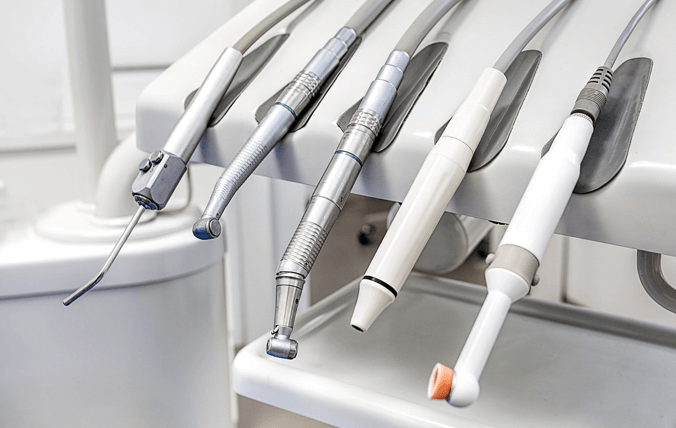Conscious sedation
Conscious sedation helps reduce anxiety, discomfort, and pain during certain procedures. This is accomplished with medications and (sometimes) local anesthesia to induce relaxation.
Conscious sedation is commonly used in dentistry for people who feel anxious or panicked during complex procedures like fillings, root canals, or routine cleanings. It’s also often used during endoscopies and minor surgical procedures to relax patients and minimise discomfort. The specialist who sees you at your assessment appointment will discuss the different options and help you decide which is best for you.
Inhalation Sedation (IHS)
Frequently Asked Questions
Is there anything that can help me with my fear of the dentist?
Yes. Some people are so frightened of the dentist that they will not go for dental treatment. They can overcome their fears with relaxation or sedation. Dentists today are sympathetic about these feelings, and you can ask your dental team about these ways to help.
What is sedation?
Your dentist may recommend an intravenous or ‘IV’ sedation. This is given by injection, either in the back of your hand or in your arm. The dose will depend on the amount of treatment needed and how long it will take to complete.
How will the sedation in the surgery affect me?
You become drowsy and are not aware of having any treatment, but you are still able to co-operate with the dentist. Most people cannot remember much about their treatment. Before the sedation, your blood pressure will be measured and during treatment your breathing and pulse will be monitored. The effects of sedative medicine take some time to wear off and your dentist will tell you how long the drugs will take to clear from your body. You won’t be able to drink alcohol, drive or work machinery during this time and it is important that you have
someone with you who can take you home and stay with you for the rest of the day.
How quickly does the sedation work?
The effect starts within seconds. Depending on the length of the procedure, the drugs will be topped up at regular intervals or will be dripping in continuously.
Will I be asleep during my treatment?
You will NOT be put to sleep – that is only allowed in a hospital. However, the drugs will make you feel relaxed and a bit drowsy, so patients do often fall asleep for parts of the treatment.
Will I have any pain?
During your treatment, you should experience no pain. If you were to feel any discomfort (eg. If the local anaesthesia starts to wear off during long procedures), you will be able to tell us so we can address that. If you have had a surgical procedure, you will have some pain after treatment.
Will I be aware of the treatment?
Yes, you will be aware of the treatment as it happens. However, you will be comfortable and relaxed and not care. Most patients have very little recollection of the treatment after the procedure, so patients often think that they must have been asleep.
How much will I remember?
Most patients have very limited recollection of the treatment after sedation. However, it is impossible to predict what you will remember. Remember: we do not sedate you to make you forget, but to make you comfortable. Forgetting some of the treatment does make the time seem to pass very quickly for the patient.
How will I feel afterwards?
You will feel drowsy. Most patients will go have a nap once they get home. The effects will gradually wear off, usually over 6-8 hours. You will need to be taken home by an able-bodied adult who will need to care for you until you have fully recovered.
Inhalation Sedation FAQ
1. What happens during inhalation sedation?
Inhalation sedation gives a pleasant, warm, tingling sensation and a feeling of wellbeing. The patient should then become more confident with each visit. Once sedated, the patient will have a topical and local anaesthesia to numb the area to avoid pain during the procedure. The length of time the patient will be treated, in case of children, will depend on the procedure they are having and how cooperative they are.
2. Are there any risks or side effects?
It is extremely safe. It is very effective if the patient can breathe through their nose. Nitrous oxide leaves the body as soon as the patient stops breathing it. The patient may feel tired after the sedation, For children, sometimes do not understand the feeling of ‘numbness’ which they often mistake for pain, so reassuring the child and try to distract them is very important.
3. What is nitrous oxide?
This is also called ‘laughing gas’ or ‘happy air’. It is a sedative which reduces anxiety, making the patient (adult or child) a bit drowsy and less aware of the procedure.
4. Why does my child need inhalation sedation?
Inhalation sedation will help to reduce fear, anxiety and improve co-operation in children, without the need of general anaesthetic. Inhalation sedation will reduce your child’s anxiety and make them feel more relaxed. It is also very helpful in children with a strong gag reflex.
5. Do I need to prepare my child for inhalation sedation?
The child should eat a light meal before the appointment. If they have a cold or cannot breathe through their nose the sedation may not work. Please contact our practice to cancel and re-arrange the appointment in the circumstance. If the child is taking medication, they must take it as usual.
6. What happens after inhalation sedation?
The patient will recover sitting in the dental chair. The patient can be taken home as soon as they are alert and responsive, which should only take a few minutes. The patient can drink normally however, it may be better to avoid eating until the numb feeling has gone away. Please follow the instructions provided. With children, they must be accompanied by their parent or legal guardian as consent will need to be confirmed. Your child may go back to school, although care must be taken to avoid biting the numb lip or cheek. If an extraction was carried out, your child should not participate in sports or games for the rest of the day as this could cause bleeding.
“Great clinic and great staff! Professional, friendly and supportive.”

 01727 800 372
01727 800 372
